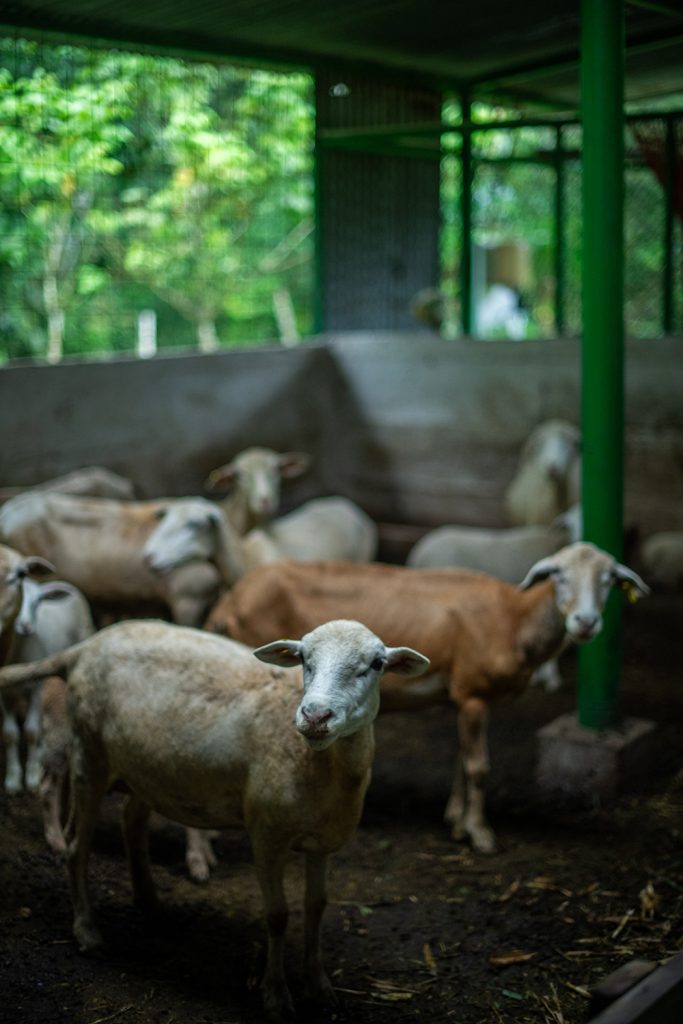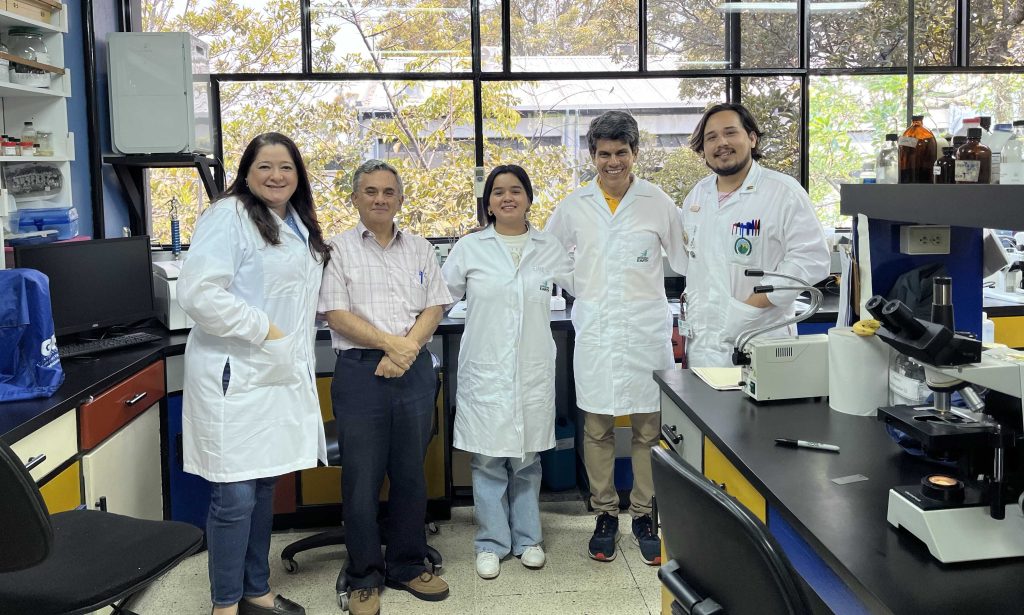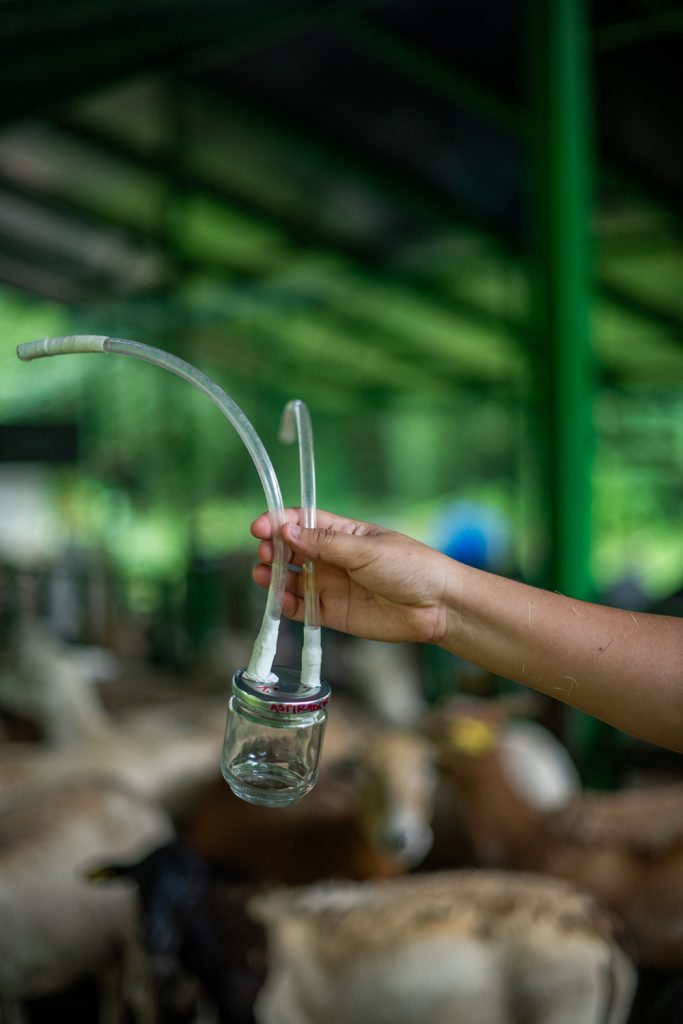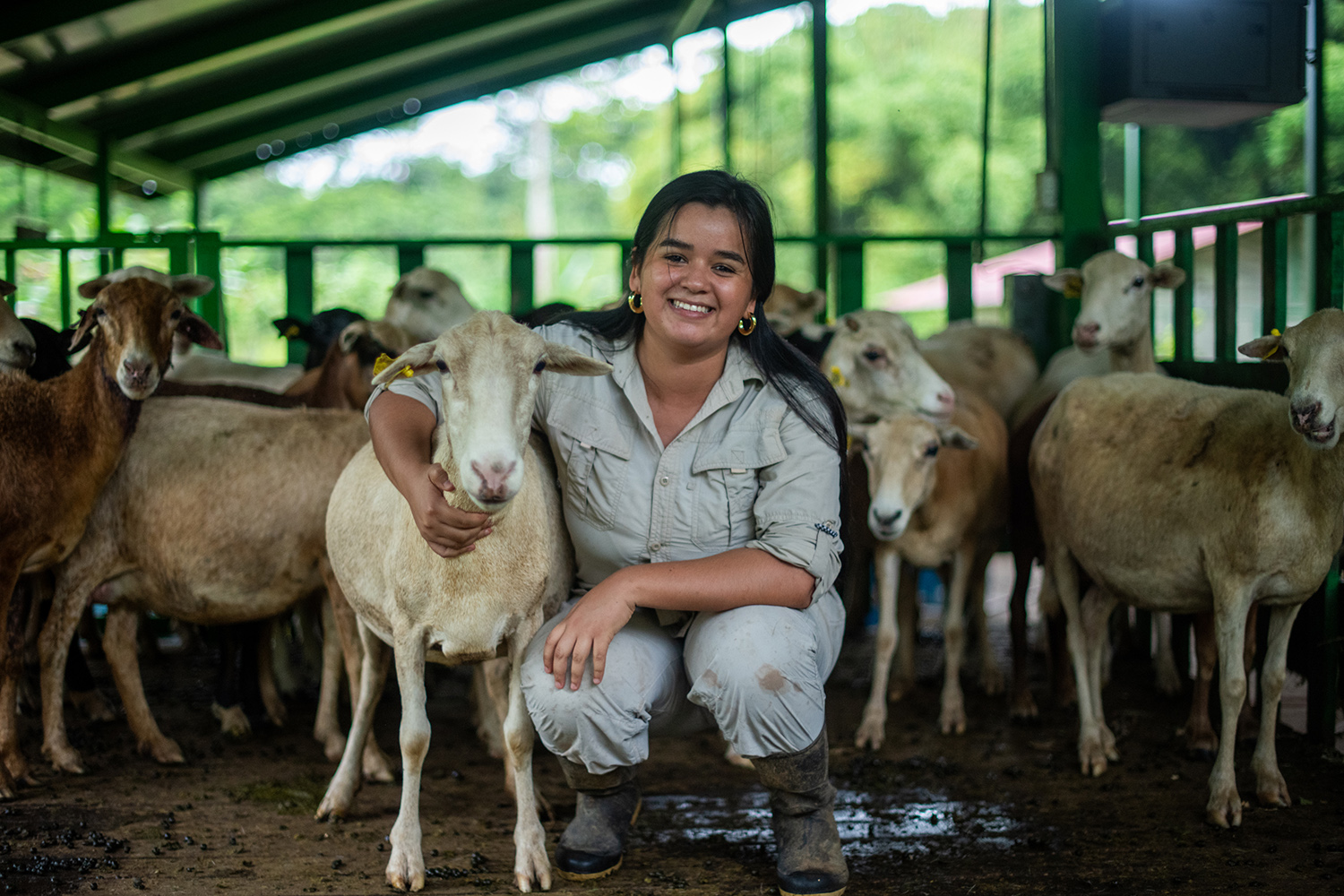“Hi girls, I’m back!” calls Mastercard Foundation Scholar Romina Ovelar González (Class of 2024, Paraguay) to the sheep as she approaches the pen where the flock rests and takes cover from the rain at EARTH’s Organic Production Academic Unit. Romina greets them warmly. During her time at the University, she has formed a bond with them, and she understands the importance of their existence within the regenerative agriculture system.
Now that she is in her senior year, Romina has decided to focus her Graduation Project (GP) on the study of hematophagous arthropods (insects that feed on the blood of vertebrate animals) to generate a comprehensive and sustainable pest control that, in turn, improves the welfare of the animals that inhabit EARTH’s Guácimo Campus. She is concentrating mainly on the sheep population that is exposed to ectoparasites (a parasite that lives on the outside of its host) that inhabit the same ecosystem.

Although Romina has a fascination for the animal kingdom, her main interest is in entomology, the study of insects. “And what does an agronomy student focused on these areas do?” she asks herself. The answer is simple: she seeks to identify and characterize ectoparasites that can become pests and to understand their relationship with the diseases suffered by sheep. She is hoping to find solutions to recurring and circumstantial problems in the area. This is how she is blending two of her passions: animal welfare and entomology.
Romina’s GP has evolved over time, but her main focus is on the study of three types of hematophagous arthropods: Diptera (flies and mosquitoes), ticks, and mites.
These species are recurrently found near animal herds. During her research, she has developed various collection and analysis techniques, including using an entomological vacuum cleaner she made herself to capture flies directly from animals. She has also performed scrapings and biopsies to rule out the presence of mites and ticks on sheep.

In addition to the support of the Academic Unit and EARTH faculty, Romina has sought the advice of researchers specialized in entomology, taxonomy, and veterinary science from the University of Costa Rica and the National University. Both entities are responsible for receiving her samples to obtain results in the laboratory. Networking and the opportunity to work together with other professionals is one of the successes that Romina highlights when she talks about how much she has learned during this process.
Among the results, she was able to reveal that although these pests are not the cause of some of the problems observed in the sheep, such as alopecia and desquamation (hair loss and flaking of skin), the existence of Diptera could be related to the transmission of bacteria that cause allergic reactions in the animals. She was also able to determine that there is no presence of mites or ticks, ruled out pathologies such as scabies, and discovered the presence of a non-hematophagous dipteran that feeds on body fluids and can be a major carrier of bacteria that affects the skin of the animals.
Her results suggest that the dermatological problems affecting the sheep are likely caused by allergic reactions arising from bacterial infections transmitted by these Diptera. However, there is still work to be done. Romina suggests that future research should continue in her project to confirm her findings and develop effective treatments.

Romina’s Graduation Project not only provides valuable information about the populations of hematophagous arthropods in the region but also opens the door to new lines of research to improve animal welfare at the University and in the Costa Rican Caribbean zone. With her dedication and creativity, Romina is laying the groundwork for future research that could revolutionize how parasites are managed in sheep production and other animal species.
We thank the Mastercard Foundation Scholars Program for encouraging students like Romina to achieve their academic and professional goals.
